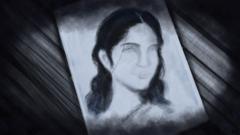As a result of this backlash, Rosy was forced into obscurity, eventually changing her identity and marrying into an upper-caste family, severing her connection to her heritage. Though her accomplishments are slowly being reclaimed by contemporary Dalit filmmakers and activists, the scars of caste-based trauma remain deeply embedded in society, obscuring her true legacy. The story of PK Rosy is not just about an actress but reflects a larger narrative of caste oppression and the sacrifices bound to survive within a prejudiced society.
**Rediscovering PK Rosy: The Trailblazing Dalit Actress Whose Legacy Was Erased by Casteism**

**Rediscovering PK Rosy: The Trailblazing Dalit Actress Whose Legacy Was Erased by Casteism**
In a stark reminder of the challenges posed by caste discrimination, the life of PK Rosy, India's first female lead in Malayalam cinema, highlights the struggle for recognition and legacy preservation.
PK Rosy, born Rajamma in early 1900s Travancore, was a revolutionary figure who, in the politically charged atmosphere of 1920s India, became the first female lead in Malayalam cinema. Her performance in *Vigathakumaran*, or *The Lost Child*, was groundbreaking, yet her legacy was overshadowed and ultimately erased due to her caste – she belonged to the marginalized Pulaya community, a group historically oppressed in India's rigid caste system. Despite her prominence as an actress, Rosy faced significant backlash for portraying an upper-caste character, leading to violent protests on the film's premiere, where she and her family were barred from attending due to their caste.



















